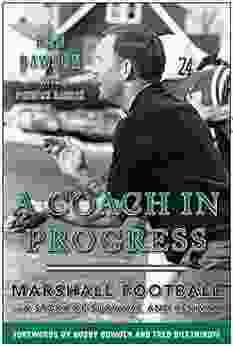Parent's Guide to Normal Childhood Development: Ages 0-18

4.5 out of 5
| Language | : | English |
| File size | : | 516 KB |
| Text-to-Speech | : | Enabled |
| Screen Reader | : | Supported |
| Enhanced typesetting | : | Enabled |
| Word Wise | : | Enabled |
| Print length | : | 243 pages |
| Lending | : | Enabled |
As a parent, it is natural to be concerned about your child's development. You want to make sure that they are growing and developing at a normal pace. But what is normal development? And how can you tell if your child is on track?
This article will provide you with a comprehensive guide to normal childhood development from birth to age 18. We will cover physical, cognitive, emotional, and social milestones. We will also provide tips on how to support your child's development and what to do if you are concerned about your child's development.
Physical Development
Physical development refers to changes in a child's body size, shape, and composition. These changes are most rapid during the first few years of life, but they continue at a slower pace throughout childhood and adolescence.
Some of the key physical milestones that children reach during the first 18 years of life include:
- Birth to 1 year: Doubles birth weight, grows about 10 inches, develops head control, learns to sit, stand, and walk
- 1 to 2 years: Continues to grow rapidly, develops fine motor skills, learns to run and jump
- 3 to 5 years: Slows down in growth, develops gross motor skills, learns to dress and feed themselves
- 6 to 8 years: Enters school, continues to develop fine and gross motor skills, learns to ride a bike and swim
- 9 to 11 years: Begins to experience puberty, develops secondary sexual characteristics
- 12 to 14 years: Puberty continues, growth spurt occurs
- 15 to 18 years: Puberty completes, reaches adult height and weight
Cognitive Development
Cognitive development refers to changes in a child's ability to think, learn, and solve problems. These changes are also most rapid during the first few years of life, but they continue throughout childhood and adolescence.
Some of the key cognitive milestones that children reach during the first 18 years of life include:
- Birth to 1 year: Develops object permanence, begins to understand language
- 1 to 2 years: Learns to use simple language, begins to understand cause and effect
- 3 to 5 years: Develops imagination, learns to count and recognize letters
- 6 to 8 years: Enters school, continues to develop language and math skills, learns to read and write
- 9 to 11 years: Develops logical thinking skills, begins to understand abstract concepts
- 12 to 14 years: Develops critical thinking skills, begins to form opinions
- 15 to 18 years: Develops abstract reasoning skills, begins to think about the future
Emotional Development
Emotional development refers to changes in a child's ability to express and regulate their emotions. These changes are also most rapid during the first few years of life, but they continue throughout childhood and adolescence.
Some of the key emotional milestones that children reach during the first 18 years of life include:
- Birth to 1 year: Develops basic emotions (joy, sadness, anger, fear),begins to express emotions
- 1 to 2 years: Develops self-awareness, begins to understand and regulate emotions
- 3 to 5 years: Develops empathy, begins to form friendships
- 6 to 8 years: Develops self-esteem, begins to understand and cope with stress
- 9 to 11 years: Develops independence, begins to form peer groups
- 12 to 14 years: Develops identity, begins to explore romantic relationships
- 15 to 18 years: Develops autonomy, begins to prepare for adulthood
Social Development
Social development refers to changes in a child's ability to interact with others. These changes are also most rapid during the first few years of life, but they continue throughout childhood and adolescence.
Some of the key social milestones that children reach during the first 18 years of life include:
- Birth to 1 year: Develops attachment to caregivers, begins to interact with others
- 1 to 2 years: Develops self-awareness, begins to play with others
- 3 to 5 years: Develops language skills, begins to form friendships
- 6 to 8 years: Develops social skills, begins to understand and follow rules
- 9 to 11 years: Develops peer relationships, begins to form cliques
- 12 to 14 years: Develops romantic relationships, begins to explore independence
- 15 to 18 years: Develops autonomy, begins to prepare for adulthood
Supporting Your Child's Development
There are many things you can do to support your child's development. Here are a few tips:
- Provide a loving and supportive environment. Children need to feel loved and supported in order to thrive. Make sure to spend time with your child, listen to them, and encourage them.
- Play with your child. Play is an important way for children to learn and develop. Make time to play with your child every day.
- Read to your child. Reading is a great way to help your child develop language and literacy skills. Make time to read to your child every day.
- Encourage your child to explore. Children learn best by exploring their environment. Encourage your child to explore both indoors and outdoors.
- Set limits and boundaries. Children need to know what is expected of them. Set clear limits and boundaries, and be consistent with your discipline.
- Talk to your child's doctor. If you have any concerns about your child's development, talk to your child's doctor. Your doctor can help you determine if your child is on track and can provide you with advice on how to support your child's development.
What to Do If You Are Concerned About Your Child's Development
If you are concerned about your child's development, it is important to talk to your child's doctor. Your doctor can help you determine if your child is on track and can provide you with advice on how to support your child's development.
Some of the signs that may indicate that your child is not developing normally include:
- Physical delays: Your child is not meeting physical milestones, such as sitting, standing, or walking.
- Cognitive delays: Your child is not meeting cognitive milestones, such as learning to talk, read, or write.
- Emotional delays: Your child is not meeting emotional milestones, such as developing empathy or forming friendships.
- Social delays: Your child is not meeting social milestones, such as interacting with others or following rules.
If you notice any of these signs, it is
4.5 out of 5
| Language | : | English |
| File size | : | 516 KB |
| Text-to-Speech | : | Enabled |
| Screen Reader | : | Supported |
| Enhanced typesetting | : | Enabled |
| Word Wise | : | Enabled |
| Print length | : | 243 pages |
| Lending | : | Enabled |
Do you want to contribute by writing guest posts on this blog?
Please contact us and send us a resume of previous articles that you have written.
 Fiction
Fiction Non Fiction
Non Fiction Romance
Romance Mystery
Mystery Thriller
Thriller SciFi
SciFi Fantasy
Fantasy Horror
Horror Biography
Biography Selfhelp
Selfhelp Business
Business History
History Classics
Classics Poetry
Poetry Childrens
Childrens Young Adult
Young Adult Educational
Educational Cooking
Cooking Travel
Travel Lifestyle
Lifestyle Spirituality
Spirituality Health
Health Fitness
Fitness Technology
Technology Science
Science Arts
Arts Crafts
Crafts DIY
DIY Gardening
Gardening Petcare
Petcare Dawn Davenport
Dawn Davenport Richard Jefferies
Richard Jefferies Joanne Webb
Joanne Webb Hanna Seymour
Hanna Seymour Susan A Milstein
Susan A Milstein Richard G Lomax
Richard G Lomax Eighth Edition Kindle Edition
Eighth Edition Kindle Edition Jeremy L Holloway
Jeremy L Holloway Janice Mcdonald
Janice Mcdonald Pass Your Class
Pass Your Class L M Montgomery
L M Montgomery Maggie Tokuda Hall
Maggie Tokuda Hall E Digby Baltzell
E Digby Baltzell Graham Bowley
Graham Bowley Jim Parks
Jim Parks Mark Rosenman
Mark Rosenman Mercedes Lackey
Mercedes Lackey Kathy A Zahler
Kathy A Zahler Christine Conners
Christine Conners Penny Simkin
Penny Simkin Jessica Mccrory Calarco
Jessica Mccrory Calarco N Katherine Hayles
N Katherine Hayles Mark Zegarelli
Mark Zegarelli Arturo Escobar
Arturo Escobar Kenny Ranen
Kenny Ranen Thomas Berry
Thomas Berry Gerry Donohue
Gerry Donohue E J R David
E J R David Tom Gilmore
Tom Gilmore Milli Hill
Milli Hill Kate Gladdin
Kate Gladdin Ryan Stramrood
Ryan Stramrood Art Smith
Art Smith Mark A Runco
Mark A Runco Daniel Mersey
Daniel Mersey Stephanie Jeanette Bradley
Stephanie Jeanette Bradley Leon James
Leon James Hayley Dimarco
Hayley Dimarco Susan David
Susan David George Sandford
George Sandford Bob Litwin
Bob Litwin Meg Meeker
Meg Meeker Isaac Asimov
Isaac Asimov Pat Mullaly
Pat Mullaly Frank Morin
Frank Morin Clifford A Pickover
Clifford A Pickover Sharon L Lohr
Sharon L Lohr Jake Maloney
Jake Maloney Stuart Clark
Stuart Clark Jim Fergus
Jim Fergus Jeff Galloway
Jeff Galloway Noelle Stevenson
Noelle Stevenson Elliot Davis
Elliot Davis Marlin Bree
Marlin Bree Lama Zopa Rinpoche
Lama Zopa Rinpoche Eric Smith
Eric Smith Jon Patrick Hatcher
Jon Patrick Hatcher Horace G Hutchinson
Horace G Hutchinson Irene Mchenry
Irene Mchenry Arthur Staple
Arthur Staple Lucy Coleman
Lucy Coleman James R Andrews
James R Andrews Gabor Szauer
Gabor Szauer Ascencia
Ascencia Forrest Griffin
Forrest Griffin Nikita Gill
Nikita Gill Cliff Jacobson
Cliff Jacobson Ingrid Kohn
Ingrid Kohn Hans Paetz Gen Schieck
Hans Paetz Gen Schieck Lex Luger
Lex Luger John H Cunningham
John H Cunningham Arthur F Coombs Iii
Arthur F Coombs Iii Arthur Bovino
Arthur Bovino Douglas Adams
Douglas Adams Jean Gebser
Jean Gebser Lore Cottone
Lore Cottone Bryce M Towsley
Bryce M Towsley Robert Heidler
Robert Heidler Michael Angelo Costa
Michael Angelo Costa Mike Acker
Mike Acker The Secret Cyclist
The Secret Cyclist Mike Rohde
Mike Rohde Jessica Seinfeld
Jessica Seinfeld Becky Goddard Hill
Becky Goddard Hill Gabriel J Connor
Gabriel J Connor Thomas J Sims
Thomas J Sims Josh Sundquist
Josh Sundquist Cal Peternell
Cal Peternell Margarita Engle
Margarita Engle Greg Nelson
Greg Nelson Kindle Edition
Kindle Edition Gene Kugach
Gene Kugach John L Crassidis
John L Crassidis Erik Weihenmayer
Erik Weihenmayer Ovidiu Calin
Ovidiu Calin Hsiang Shui Chen
Hsiang Shui Chen Tracy Zager
Tracy Zager Mary Ann Ochota
Mary Ann Ochota Logan Duvall
Logan Duvall Julia Ann Clayton
Julia Ann Clayton Elizabeth King
Elizabeth King Manveen Kaur
Manveen Kaur Rachel Blunk
Rachel Blunk Pamparam Kids Books
Pamparam Kids Books Brian J Lang
Brian J Lang Rojan Robotham
Rojan Robotham Kathy Charner
Kathy Charner Lynn Arave
Lynn Arave Hussein A Abbass
Hussein A Abbass R M Romero
R M Romero Barry H Lopez
Barry H Lopez Kris Wilder
Kris Wilder Gong Chen
Gong Chen Benny A Wit
Benny A Wit Gerry Cheevers
Gerry Cheevers Seth Stein
Seth Stein Stuart Ritchie
Stuart Ritchie Elizabeth E Wein
Elizabeth E Wein Pat Dooley
Pat Dooley Stefan Ecks
Stefan Ecks Darren Byler
Darren Byler Harville Hendrix
Harville Hendrix Conrad Bauer
Conrad Bauer Wayne Teasdale
Wayne Teasdale Paul Henley
Paul Henley Doreen Lenz Holte
Doreen Lenz Holte Crystal Marie Fleming
Crystal Marie Fleming Chris Bonington
Chris Bonington Jesper Juul
Jesper Juul Simon Singh
Simon Singh Audrey Sutherland
Audrey Sutherland Martin E P Seligman
Martin E P Seligman Dawn Hogue
Dawn Hogue Deborah Tannen
Deborah Tannen Deborah Jiang Stein
Deborah Jiang Stein James Poskett
James Poskett Paul Mcghee
Paul Mcghee Elizabeth Parker
Elizabeth Parker Swami Vivekananda
Swami Vivekananda Duncan Wells
Duncan Wells Ed Parker
Ed Parker Charles E Schaefer
Charles E Schaefer Lechna Baram
Lechna Baram Arthur Bochner
Arthur Bochner Bill Chambers
Bill Chambers Aryeh Kaplan
Aryeh Kaplan Hazrat Inayat Khan
Hazrat Inayat Khan Colin Allen
Colin Allen Drew Harris
Drew Harris Mistletoe Christmas Collection
Mistletoe Christmas Collection Jamie Ward
Jamie Ward T C Edge
T C Edge Sadie Keller
Sadie Keller James Lawson
James Lawson Lisa A Alzo
Lisa A Alzo Nsca National Strength Conditioning Association
Nsca National Strength Conditioning Association Edith Pattou
Edith Pattou Michael Strevens
Michael Strevens Aaron Linsdau
Aaron Linsdau Tori Bortman
Tori Bortman Thomas Kinkade
Thomas Kinkade Karyn Siegel Maier
Karyn Siegel Maier Eben Weiss
Eben Weiss Karen Gravelle
Karen Gravelle Ben Hogan
Ben Hogan Simone Elkeles
Simone Elkeles Isaiah Helekunihi Walker
Isaiah Helekunihi Walker The College Board
The College Board Izzy Judd
Izzy Judd Sean Gordon Murphy
Sean Gordon Murphy Braun Anthony
Braun Anthony Anni Daulter
Anni Daulter Ashley Christensen
Ashley Christensen Nadine Slavinski
Nadine Slavinski Holly Jackson
Holly Jackson Michael J Steele
Michael J Steele Erving Goffman
Erving Goffman Spanked Teen
Spanked Teen Mark Bishop
Mark Bishop Brett Topel
Brett Topel Asanaro
Asanaro Tina Olton
Tina Olton Sarah Shephard
Sarah Shephard Toby Neighbors
Toby Neighbors Kathy Kochan
Kathy Kochan Marie Bigelow
Marie Bigelow Henry Petroski
Henry Petroski Payal Khurana
Payal Khurana Scott Draper
Scott Draper John T Moore
John T Moore Jeffery Pfeffer
Jeffery Pfeffer Kami Garcia
Kami Garcia Jessica Rhodes
Jessica Rhodes Pete Peterson
Pete Peterson Roger Wiens
Roger Wiens Jean Haner
Jean Haner Kathie Lee Gifford
Kathie Lee Gifford Lynelle Schneeberg
Lynelle Schneeberg Arthur Beiser
Arthur Beiser Ralph H Hruban
Ralph H Hruban Tom Holland
Tom Holland Elaine Howard Ecklund
Elaine Howard Ecklund Steve Sheward
Steve Sheward Beth Shaw
Beth Shaw Brian Noyes
Brian Noyes Rick Curtis
Rick Curtis Stephen Jay Gould
Stephen Jay Gould Karin Cadwell
Karin Cadwell Gareth Southgate
Gareth Southgate Braeden Baade
Braeden Baade Nicholas Marsh
Nicholas Marsh Ruth Ehrhardt
Ruth Ehrhardt Laura Hulleman
Laura Hulleman Ray Jarrett
Ray Jarrett Rosalyn Hoffman
Rosalyn Hoffman David Nicholls
David Nicholls Ashley Rhodes Courter
Ashley Rhodes Courter Louis Berney
Louis Berney Benjamin Alire Saenz
Benjamin Alire Saenz Mariolina Ceriotti Migliarese
Mariolina Ceriotti Migliarese Sharleen Woods
Sharleen Woods Lsatmax Lsat Prep
Lsatmax Lsat Prep Joanne Rodrigues
Joanne Rodrigues Ray Mears
Ray Mears Malcolm Russell
Malcolm Russell Mary E Pearson
Mary E Pearson Dave Seminara
Dave Seminara Joe Cermele
Joe Cermele Bradford Angier
Bradford Angier Nancy Springer
Nancy Springer Robert W Cohen
Robert W Cohen Louise Davidson
Louise Davidson Katie Shaw
Katie Shaw Ethan Sawyer
Ethan Sawyer Jay Gitomer
Jay Gitomer Marc Macyoung
Marc Macyoung Jamie Andrews
Jamie Andrews Drew Monkman
Drew Monkman William Henry
William Henry Roz Maclean
Roz Maclean Philip Pullman
Philip Pullman Pittacus Lore
Pittacus Lore Lisa Taddeo
Lisa Taddeo Mike Carter
Mike Carter Ben Romans
Ben Romans Michael Grant
Michael Grant Gillian Hutchinson
Gillian Hutchinson Courtney Loquasto
Courtney Loquasto Lisa Crayford
Lisa Crayford Lynn Clark
Lynn Clark Els Van Geyte
Els Van Geyte John Lawson
John Lawson Echo Heron
Echo Heron Rachael Lippincott
Rachael Lippincott Kimberly Eldredge
Kimberly Eldredge Red Dawson
Red Dawson Robert R Harr
Robert R Harr Peggie Hall
Peggie Hall Jeremy Wade
Jeremy Wade Cameran Eubanks Wimberly
Cameran Eubanks Wimberly Richard Hartley
Richard Hartley Jennifer Love
Jennifer Love Linda Carter
Linda Carter Dr Monique Thompson Dha Lpc
Dr Monique Thompson Dha Lpc Kathleen Cushman
Kathleen Cushman Stefan Klein
Stefan Klein Inc Barcharts
Inc Barcharts Ransom Riggs
Ransom Riggs Howard Burton
Howard Burton Stuart Shanker
Stuart Shanker Nir Barzilai
Nir Barzilai Peter Goos
Peter Goos Yvon Chouinard
Yvon Chouinard Jeff Seidel
Jeff Seidel Grace Stockholm
Grace Stockholm Pat Anvil
Pat Anvil Julie Hall
Julie Hall Walter Martin
Walter Martin Marcia K Anderson
Marcia K Anderson Itzhak Bentov
Itzhak Bentov Mark Powell
Mark Powell Michael Phelps
Michael Phelps Dan Benardot
Dan Benardot 005 Edition Kindle Edition
005 Edition Kindle Edition William Egelman
William Egelman Kate Gruenwald Pfeifer
Kate Gruenwald Pfeifer Stefan Burban
Stefan Burban Samira Ahmed
Samira Ahmed Pat Falvey
Pat Falvey Tiffany D Jackson
Tiffany D Jackson Cornelia Pelzer Elwood
Cornelia Pelzer Elwood Kindle Interactive Edition
Kindle Interactive Edition Charles Bowden
Charles Bowden Bret Pettichord
Bret Pettichord Randy Kadish
Randy Kadish Eileen Pollack
Eileen Pollack Sofia Price
Sofia Price Doug Good Feather
Doug Good Feather W Michael Kelley
W Michael Kelley Nichola Luther
Nichola Luther David Bodanis
David Bodanis Leigh East
Leigh East Laura Navarre
Laura Navarre Kay Lynn Wilson
Kay Lynn Wilson Rob Bignell
Rob Bignell Cassandra Vieten
Cassandra Vieten Judy Bartkowiak
Judy Bartkowiak Benny Lewis
Benny Lewis Rainbow Rowell
Rainbow Rowell Richard L Currier
Richard L Currier Catherine Tucker
Catherine Tucker Richard F Larkin
Richard F Larkin Sparknotes
Sparknotes Joyce Goldstein
Joyce Goldstein Isolina Ricci
Isolina Ricci Stacy Lynn Harp
Stacy Lynn Harp Jim Gray
Jim Gray Edwin Monk
Edwin Monk Paul Chapman
Paul Chapman Chris Hart
Chris Hart Thomas C Tabor
Thomas C Tabor Michael Tlanusta Garrett
Michael Tlanusta Garrett Arthur Scott Bailey
Arthur Scott Bailey Regina Leeds
Regina Leeds Ronald D Siegel
Ronald D Siegel Rod Heikell
Rod Heikell Christia Spears Brown
Christia Spears Brown Jennifer Comeaux
Jennifer Comeaux Stephanie Muntone
Stephanie Muntone Gail Reichlin
Gail Reichlin Kate Mosse
Kate Mosse Talk In Italian
Talk In Italian Daniel Mccain
Daniel Mccain Seth Fletcher
Seth Fletcher Matt Kalman
Matt Kalman Michael Crichton
Michael Crichton Steven Kotler
Steven Kotler Briana Wiles
Briana Wiles Martin Hall
Martin Hall Brian Johnson
Brian Johnson Gavin Chappell
Gavin Chappell Arun Jagannathan
Arun Jagannathan Gary Paulsen
Gary Paulsen William G Tierney
William G Tierney Scott Morrison
Scott Morrison Lindsey Bliss
Lindsey Bliss Belinda Norton
Belinda Norton Larry Krieger
Larry Krieger Charlie Portlock
Charlie Portlock Claire Hartfield
Claire Hartfield Dave King
Dave King Beth Bartolini Salimbeni
Beth Bartolini Salimbeni Hrishikesh Joshi
Hrishikesh Joshi Scott A Small
Scott A Small Jessica Grogan
Jessica Grogan Elaine Menger
Elaine Menger Jemma Foster
Jemma Foster Skyhorse Publishing
Skyhorse Publishing Darren Palmer
Darren Palmer Vijay Vad
Vijay Vad Chris Bird
Chris Bird Mark Jackson
Mark Jackson David Kinch
David Kinch D A Saia
D A Saia Stan Skrabut
Stan Skrabut Mike Mattesi
Mike Mattesi Gregory Hodges
Gregory Hodges Peter Haining
Peter Haining Jennifer Grouling Cover
Jennifer Grouling Cover Christine Stephenson
Christine Stephenson S Frederick Starr
S Frederick Starr John Small
John Small Prem Carnot
Prem Carnot Simon Nasht
Simon Nasht Robert K Yin
Robert K Yin Paola Roig
Paola Roig Match
Match Karim Soliman
Karim Soliman William L Briggs
William L Briggs 11th Edition Kindle Edition
11th Edition Kindle Edition Rob Rachowiecki
Rob Rachowiecki Brad Walker
Brad Walker Alexander Boxer
Alexander Boxer Jenny Hall
Jenny Hall Jakub Kalinowski
Jakub Kalinowski Karen M Mcmanus
Karen M Mcmanus Leigh Montville
Leigh Montville Bridget Bishop
Bridget Bishop Dana Frank
Dana Frank Zapheria Bell
Zapheria Bell Robert E Moyer
Robert E Moyer Susan Radulovacki
Susan Radulovacki Kirstie Mclellan Day
Kirstie Mclellan Day Nancy Johnson
Nancy Johnson Ash Fortis
Ash Fortis Auriane Desombre
Auriane Desombre Mito Bessalel
Mito Bessalel Jada Fisher
Jada Fisher John Treacher
John Treacher Dustin Lynx
Dustin Lynx Michael Mccarthy
Michael Mccarthy Nystce Exam Secrets Test Prep Team
Nystce Exam Secrets Test Prep Team Chris Scott
Chris Scott Kerry Keene
Kerry Keene Thomas Teselli
Thomas Teselli P T Shank
P T Shank Jason Hanson
Jason Hanson Brandi Dion
Brandi Dion Keith Bateman
Keith Bateman Ursula K Le Guin
Ursula K Le Guin Stephen J Wright
Stephen J Wright Katie Banks
Katie Banks Michelle Medlock Adams
Michelle Medlock Adams Sarah Allen
Sarah Allen John Miller
John Miller Eric S Raymond
Eric S Raymond Eliza Reid
Eliza Reid Huntley Fitzpatrick
Huntley Fitzpatrick Robin Theiss
Robin Theiss Karl F Kuhn
Karl F Kuhn Rachel Cathan
Rachel Cathan Jim Hartnett Pga
Jim Hartnett Pga Mark Beaumont
Mark Beaumont Denny Krahe
Denny Krahe Lance Gettler
Lance Gettler Asato Asato
Asato Asato Hunter Allen
Hunter Allen Susan J Fisher
Susan J Fisher Scott Cookman
Scott Cookman Laurie Katz
Laurie Katz Rika Lukac
Rika Lukac J P Moreland
J P Moreland Robert H Pantell
Robert H Pantell Hernan Chousa
Hernan Chousa Gerald Pruett
Gerald Pruett Don Cherry
Don Cherry Zita Grant
Zita Grant Carolyn Nones Vazquez
Carolyn Nones Vazquez Brian Cole
Brian Cole Richard Miller Adi
Richard Miller Adi Roberta Steinberg
Roberta Steinberg Lisa Damour Ph D
Lisa Damour Ph D Brad Edmondson
Brad Edmondson Sarah Burton
Sarah Burton Brendan Noble
Brendan Noble T Ralph Turner
T Ralph Turner R Michael Shaft
R Michael Shaft Leona Hendrix
Leona Hendrix Charlie Craven
Charlie Craven Emily M Leonard
Emily M Leonard Kurt Koontz
Kurt Koontz Jacqueline Melvin
Jacqueline Melvin Kenneth Hayes
Kenneth Hayes Harvard Business Review
Harvard Business Review Dr Terry Zachary
Dr Terry Zachary Rae Yang
Rae Yang Camieyes Inc
Camieyes Inc Michael R Ange
Michael R Ange Whitney Holcombe
Whitney Holcombe Michel Boivin
Michel Boivin Mizuho Kusanagi
Mizuho Kusanagi Justina Ireland
Justina Ireland Ricardo D Palacios
Ricardo D Palacios David Hatcher Childress
David Hatcher Childress Martin Shaw
Martin Shaw Sarah Leah Chase
Sarah Leah Chase Joel Spring
Joel Spring Isaac Newton
Isaac Newton Paul M Sutter
Paul M Sutter Donald E Brown
Donald E Brown Lauren Sullivan
Lauren Sullivan Chris Algieri
Chris Algieri Arthur Benjamin
Arthur Benjamin Warren F Kimball
Warren F Kimball Sophia Glock
Sophia Glock Jamie James
Jamie James Db King
Db King Thomas Henry Huxley
Thomas Henry Huxley Isle Osaki
Isle Osaki Kirkham Ross
Kirkham Ross Barack Obama
Barack Obama Charlotte Browne
Charlotte Browne Paul Levy
Paul Levy Dan Jenkins
Dan Jenkins Joseph A Gallian
Joseph A Gallian Be Learning
Be Learning K E Ganshert
K E Ganshert Bradley G Stevens
Bradley G Stevens Milo Kemp
Milo Kemp John Vince
John Vince Lorraine Allman
Lorraine Allman Douglas Fisher
Douglas Fisher David Dibenedetto
David Dibenedetto Sara Hopkinson
Sara Hopkinson Drew Neil
Drew Neil Brittney Wilson
Brittney Wilson Derek Prince
Derek Prince Eric J Wittenberg
Eric J Wittenberg Al Sweigart
Al Sweigart Fred Zeglin
Fred Zeglin Norman Link
Norman Link Tony Kemerly
Tony Kemerly Scott Hartshorn
Scott Hartshorn Lisa Cordeiro
Lisa Cordeiro Patrick M Andendall
Patrick M Andendall Nigel Latta
Nigel Latta
Light bulbAdvertise smarter! Our strategic ad space ensures maximum exposure. Reserve your spot today!

 Glen PowellPocket Guide for Lactation Management: A Comprehensive Guide to Breastfeeding...
Glen PowellPocket Guide for Lactation Management: A Comprehensive Guide to Breastfeeding... Gerald ParkerFollow ·15.6k
Gerald ParkerFollow ·15.6k Ron BlairFollow ·2k
Ron BlairFollow ·2k Cody RussellFollow ·14.2k
Cody RussellFollow ·14.2k Kendall WardFollow ·14.8k
Kendall WardFollow ·14.8k Bobby HowardFollow ·4.5k
Bobby HowardFollow ·4.5k Rick NelsonFollow ·18k
Rick NelsonFollow ·18k Henry JamesFollow ·2.2k
Henry JamesFollow ·2.2k Chad PriceFollow ·11.6k
Chad PriceFollow ·11.6k

 Braden Ward
Braden Ward125 Recipes to Embark on a Culinary Journey of Virtue and...
Embark on a culinary...

 Benji Powell
Benji PowellItalian Grammar for Beginners: Textbook and Workbook...
Are you interested in...

 Joseph Foster
Joseph FosterThe Suffragette Journey to Cuba: A Long and Winding Road...
The suffragette...

 Dustin Richardson
Dustin RichardsonAsia First Dinghy Sailing Gold Medallist Making Waves
Keerati Bualong is a Thai sailor who made...

 Aleksandr Pushkin
Aleksandr PushkinRediscover the Creator's Purpose for Men: Embracing...
: The Need for a Rediscovery In an era...
4.5 out of 5
| Language | : | English |
| File size | : | 516 KB |
| Text-to-Speech | : | Enabled |
| Screen Reader | : | Supported |
| Enhanced typesetting | : | Enabled |
| Word Wise | : | Enabled |
| Print length | : | 243 pages |
| Lending | : | Enabled |












